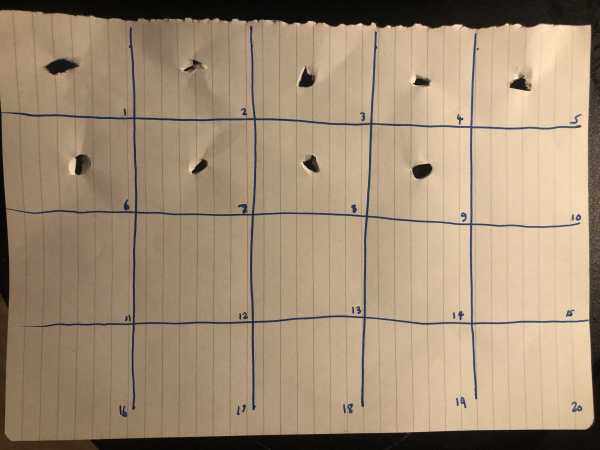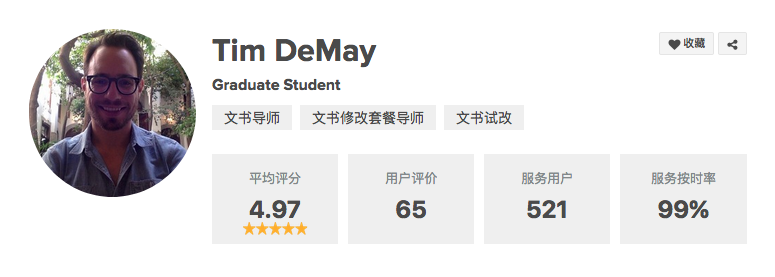
本文由以下三位芝士圈顾问提供建议并供稿。
Andy Daum worked in corporate law in London and Hong Kong before starting businesses in China and the US. He manages a global team of admissions advisors whose sole focus is the quality and caliber of admissions documents. He is a graduate of the University of Oxford and is qualified to practice law in England & Wales.
Start by doing a quick qualifications check
Step 1
Applying to PhD programs with a masters is the most common route. But some PhD programs in the USA accept undergraduate qualifications.
Step 2
You’ll need to take the GRE (Graduate Record Examination) because these scores are often required for admittance into PhD programs in the US, so it is a good idea to take the GRE before you can apply.
Step 3
PhD requirements in the USA for international students are also subject to some variation, so add these to your list of things to check about possible application targets!
PhD application timeline
Begin early!
Starting early will give you the time to do the thorough research and preparation that can really make your application stand out. A Ph.D. is a demanding endeavor that will take up at least 4 years of your life. A little time now will pay dividends.
We’re not saying you’re under any kind of obligation to do X, Y, and Z early. Just know that any procrastinating you do know is because you’re worried about something. Figure out what’s worrying you and deal with it. Then, you won’t need to procrastinate any more.
Strong focus makes for strong phd applications
Warren Buffet is a man worth listening to whatever the situation. One of my favorite little anecdotal pieces of advice that is attributed to him goes like this:
“I could improve your ultimate … welfare by giving you a ticket with only twenty slots in it so that you had twenty punches – representing all the investments that you got to make in a lifetime. And once you’d punched through the card, you couldn’t make any more investments at all. Under those rules, you’d really think carefully about what you did, and you’d be forced to load up on what you’d really thought about. So you’d do so much better.”
Warren Buffet, CEO of Berkshire Hathaway

How many holes will you have punched by the end of your PhD? How many will you have left to fill? It’s sobering, but it’s energizing.
Your PhD is an investment of money. It’s your time. It’s also your potential: It’s your opportunity to build skills to unlock your talents and make them really relevant to things you care about. It’s an amazing thing to do.
Therefore, we say this: Treat the process with the gravity it deserves. You won’t regret it!
A strong PhD application is all in the planning
The way you plan and execute your application is part of the game, part of the challenge, part of what you’re being assessed on. Therefore use your application—its very execution and inherent caliber and thoughtfulness—as a way to demonstrate your willingness and ability to participate in the program.
What’s your story?
Taking the time to collect your reflections on yourself, why you’re doing this, and what you need to get out of this are pretty important.
It can sound very abstract and non-pragmatic to some people. That reflex is to be regarded with caution! It’s a way of thinking that pays off in the end.
Self-knowledge helps you identify programs that will match your needs and goals, but will also help you face a lot of other obstacles that lie ahead with considerable aplomb!
Establish your priorities
Are you more interested in spending time in the lab, in fieldwork or in doing theoretical work? Will the program accommodate your preference?
Work the room you’re already in
Start speaking with your professors at your current institution. These relationships will help you. Your current professors are well-informed both about you and your interests and the disciplinary landscape out there. They can recommend programs to you. They will know faculty at other institutions. Their contacts are the most immediate and perhaps most valuable potential contacts for you.
There can be some nepotism in graduate admissions, as there is in absolutely every sphere of existence. Connections and networking between your undergraduate professors and your target graduate program can play a positive role in the process.
Make a spreadsheet
Different Ph.D. programs will have wildly different requirements when it comes to letters of recommendation, interview configuration, personal statement parameters, writing sample, GRE/LSAT/other tests, GRE Subject Tests, etc.In fact, it isn’t atypical for similar programs at the same university to have different requirements. Being organized about the different requirements of each program can save you precious time and help you avoid problems. That means maintaining and updating the spreadsheet. Commit to your spreadsheet!
How to find a PhD program
A word about schools
Go to the best school possible and work as hard as possible?
Wouldn’t it be great if life was so simple? Maybe. It all depends on what you mean by ‘best’.
Resist the urge to choose a program or university based on “brand name” recognition. Harvard or Yale or Columbia… These schools have proven reputations that means highly qualified faculty among which one could easily find a supervisor.
But then stop for one of your precious moments on this fair green earth Earth and consider George Mason University. US News ranks it 139th. Its economics faculty includes two Nobel prizewinners, Vernon Smith (formerly of the University of Arizona) and Gordon Tullock (who, intriguingly, as a student, only ever took one class in economics).
The best school is the one where you learn the most, build the most confidence, and figure out how to project your skills and motivations into the world for the greater good! So think about whether the program itself is right for you and your goals.
Thinking about supervisors
Your relationship with your Ph.D. supervisor is crucial and it will serve you well to spend the time researching and contacting potential supervisors. That starts with thinking about who to approach. Look for who, not where.
Be guided by your research, your reading lists, the recommendations of those in your discipline you respect.
It is worth taking the time to research, identify, and contact potential Ph.D. supervisors (or their current Ph.D. students) to get an idea of what your experience is likely to be for the next several years as you tackle your Ph.D!
Realize that you often won’t choose your actual dissertation supervisor until you are a couple of years into your PhD program. You’ll typically be doing classwork for several semesters before developing your own research project. You may be assigned an advisor or given a research or teaching fellowship with a faculty member from the start, but that person will not necessarily become your primary dissertation advisor.
Also keep in mind that focusing on a single faculty member in your personal statement can hurt your chances of admission unless you already have a close relationship with that person and know his or her situation well. Faculty members change jobs; they retire; they go on sabbatical; they take on funding opportunities that make graduate advising difficult; they die. It’s also possible the person you have singled out is disliked by the people reading applications or has such a high advising load that the graduate admissions folks are reluctant to admit yet another student interested in studying with that person.
You’re better off mentioning a few names of people whose work excites you. Do your research of the faculty. The PhD program is trying to enroll a class that has interests spread across all of the department’s faculty. Read faculty bios. Check out their publications. Find out what the new hires, Assistant Professors, and future academic stars are doing. The graduate program will be excited to find an applicant who is eager to work with the new and less-known members of the faculty. This approach is more than an admissions strategy: you may find that you have a much better graduate school experience working with the newer faculty than if you work with over-committed Professor Famous.
Dr. Allen Grove, University of Pennsylvania, MIT | ZHISHIQ advisor
Don’t be too fixed on individual supervisors in your thinking. Remember, many programs know students will change through their coursework, and US programs especially encourage this kind of development. It’s extremely common for students to choose a different advisor, and even subfield, before their 3rd year (which, in US programs, is when students narrow down for their comprehensive exams and prospectus).
The importance of the committee should not be underestimated. It is important get a sense of whether there are multiple professors who might share your interests/whom you can learn from. I tend to suggest my PhD applicants think about 2-3 professors whose work they appreciate, and to not really pose it as “supervisor” as much as framing it in language related to their interests/writing sample, like “My analysis of Arabic dialectic would by widened by Prof. Smith’s studies on Amazight populations in North Africa,” which shows they are ‘thinking like a grad student’ already.
Furthermore, be wary of mentioning prestigious professors – these professors get all the supervisor attention, and can’t take on every student who wants to share their aura. It’s great to mention them if you actually want to work with them and your research is related, but soften the application by looking at others in the department. This has benefits beyond the application, as getting more individuals in the department familiar with your work greatly increases the support you can expect.
Tim DeMay, University of Chicago, University of Maryland | ZHISHIQ advisor
How to contact PhD programs
How to write a PhD contact email
The purpose of a contact email is to announce yourself, to give an impression. It’s not a full-blown application. Don’t include everything and anything. 99% of them won’t read anything too long. They don’t have time. No one does.
Summarize your research and who you are briefly. Really briefly. Then, ask smart questions that you actually want the answers to that also show respect for the recipient’s time. Don’t ask questions that can be answered on the website (or through other enquiries). It leaves a bad impression.
Good questions to ask PhD programs
- Is there a research direction you anticipate you will pursue going forward?
- [EXPLAIN YOUR RESEARCH INTEREST – BRIEFLY 2-3 sentences max.]: Would you say that is a good match with your work?
- Do students who excel on your program share any particular characteristics? And those who have difficulties?
- Is the a particular culture between faculty and students on your program?
- In an application, is there anything you would say it is very important for me to highlight?
PhD application letter
We’re going to jump ahead now, for a brief word on the PhD application or statement.
We find the most valuable tips communicate a mindset. This is one of those kinds of tips! Here we go:
The PS is another chance to show that you are already thinking like a graduate student. Narrate your research interests and connect them to your writing sample, the program, your past education, and the professors.
Writing like this expresses who you are while demonstrating that you are already working at a PhD level. It simply and directly shows to the reading committee that you are a student that can hack it. Start as you mean to continue, eh!
芝士圈留学平台把800多位海外导师、留学生行家,根据教育背景、专业经历进行智能数据分析,形成服务提供者数据库;平台根据用户需求和背景进行智能匹配,生成服务提供者名单供用户选择。
目前所涵盖的服务有:外籍顾问文书修改服务、留学顾问咨询服务、学术文章翻译润色服务、国际快递服务、留学申请档案查阅服务。截止目前,芝士圈已服务申请者超过35395 位,人均3.7个offer/AD。包括哈佛、剑桥、牛津、斯坦福等世界高等学府offer。
芝士圈留学免费福利
- 注册后免费查看一份成功者申请档案: 名校录取者GPA、语言成绩、留学文书
- 申请成功者背景参考: 注册 后添加客服微信,发送「目标申请国家/地区+专业」领取
- 注册后无限量查看:留学文书范文,含PS/SOP、简历、essay等



























 导师:Monica V
导师:Monica V

 导师:Adam S
导师:Adam S

 导师:Marni Kelly
导师:Marni Kelly

 导师:George J T
导师:George J T












